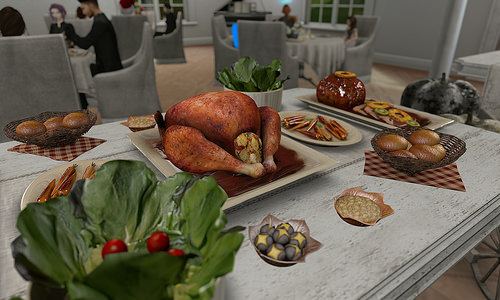

The election is over. Now what? In this series, I will use Romans 12 to frame reflections of this presidential campaign and hopefully encourage us to live faithfully as we return to the “ordinary time” of the American political calendar. See Part 1 here. Editor’s note: For previous statistical analysis and nonpartisan political reflection from Josh’s expertise, see this link.
This election season has challenged and strained relationships. Nearly four-in-ten Americans report the election has led to tensions with friends and families. This Thanksgiving week, how can we reconcile and restore our relationships when we reunite with family and friends?
In Romans 12:3-8, the apostle Paul describes three principles that can guide our civil engagement, especially with those who may have different political attitudes than we do. First, we are called to be humble. Second, we are reminded of our diversity and unity in Christ. Third, we are urged to serve each other with the specific gifts God has given us.
For by the grace given to me I say to everyone among you not to think of himself more highly than he ought to think, but to think with sober judgment, each according to the measure of faith that God has assigned. (Romans 12:3)
Humility is not a trait valued in politics. But before God, none of us can be proud or haughty. Let us give up our thoughts of “I told you so” or indignation of “how could you believe and vote that way.” Instead, may we be humble and not overrate our importance or ability to understand, predict, and prescribe the “right” politics.
For as in one body we have many members, and the members do not all have the same function, so we, though many, are one body in Christ, and individually members one of another. (Romans 12:4-5)
This election revealed deep divisions in America. There are significant differences in political preferences across race, gender, and education. Voting choice also diverged across rural and urban areas, revealing a polarized America, or perhaps two distinct Americas.
Similar divisions are apparent among evangelicals. More than eight-in-ten white evangelicals voted for the president-elect, leading to surprise and lament among many non-white evangelicals who could not support him.
How can we respond to the revealed reality of a divided America and divided church?
Taking Paul’s example, we should not ignore or dismiss the diversity within the Church. Just as “members [of the body] do not all have the same function”, so we should also acknowledge the real differences within the Church. People of faith who share similar theological beliefs and practices will not necessarily have the same social, economic, or political preferences. Nor is there consensus on how Christians should participate in the political process, both broadly and specifically in the aftermath of this contentious election cycle.
But while diverse and different, we are united in Christ. We need and are mutually dependent on each other. This embrace of diversity is not motivated by political correctness or social convenience. It emerges from a shared experience of Christ’s redemptive work in all of our lives. And it is hopeful based on the unity amidst diversity described in Revelation 7:9 where “a great multitude that no one could number, from every nation, from all tribes and peoples and languages” together praise Christ in the new Heavens.
But how can we seek to recognize diversity while seeking unity today?
Having gifts that differ according to the grace given to us, let us use them: if prophecy, in proportion to our faith; if service, in our serving; the one who teaches, in his teaching; the one who exhorts, in his exhortation; the one who contributes, in generosity; the one who leads, with zeal; the one who does acts of mercy, with cheerfulness. (Romans 12:6-8)
We are called to use the specific gifts God has given us to serve each other. We do not all have the same gifts, so we must rely on each other. The seven gifts Paul describes here are all outward actions and social practices. How can we teach, lead, or do acts of mercy unless we are engaging with and in community with others? Therefore, as we seek to recognize the gifts God has given us, let us use them to build up each other in the body of Christ. And doing so requires us to not withdraw from but be invested in the communities we are placed in.
We live in a divided country. As the body of Christ, let us seek to restore, rebuild, and renew relationships that may have been strained over the course of this election. This week is a good time for us to start, and among the family and friends we hold most dear.
As we celebrate Thanksgiving with loved ones this week, let us be humble in listening to and seeking reconciliation with families and friends. Let us not ignore but acknowledge the real differences that can divide us. And let us use and encourage each other to use the specific gifts God has given us to serve and love each other.
Joshua Su-Ya Wu is a husband, father, pastor’s kid, and social scientist seeking to faithfully reflect Christ in all aspects of his life. He has a doctorate in Political Science from The Ohio State University, works in analytics and data science, and writes about data analytics at Reasonable Research and the intersection of faith and culture at Stuff I Didn’t Learn in Church. He currently lives in Rochester New York with his wife and two kids, and can be reached on Linkedin or on Facebook

Leave a Reply